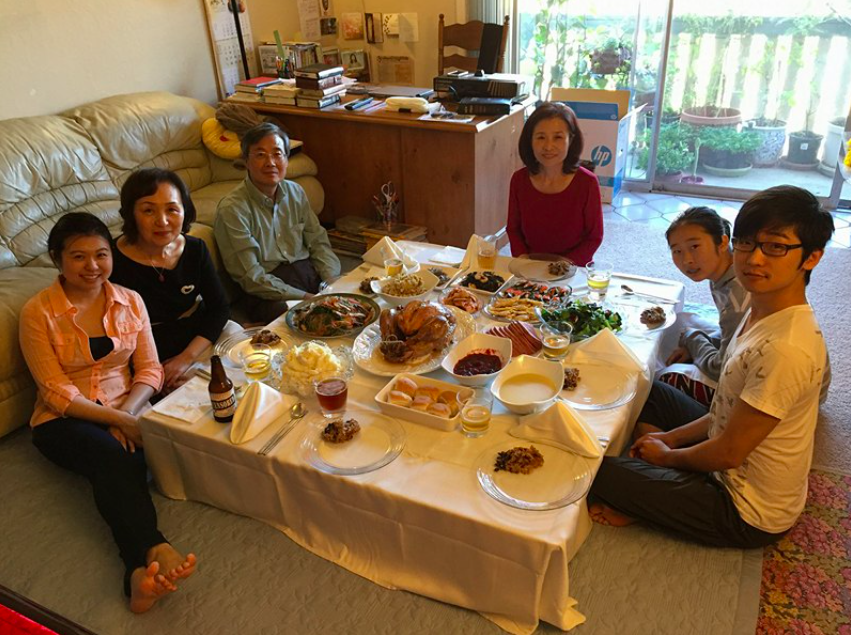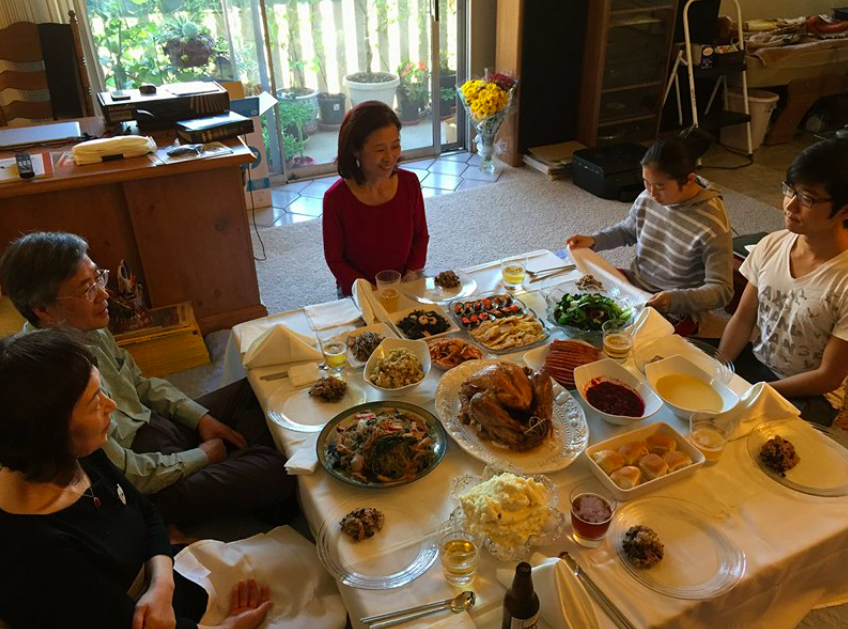At holiday family gatherings, the atmosphere is typically excited and warm. Hugs and warm greetings are exchanged as the family settles around the table. The conversation tends to start out lightly — school, work, weather, some catching up. But when the conversation transitions into politics, the tone shifts, tempers instantly flare, voices get louder, and sides form. In just a few minutes, it is possible that a family can find themselves divided over a pointless argument.
With the country’s current political climate, talking politics can quite easily become a very heated topic. In discussions between family members or friends, these conversations can quickly get out of hand. With such polarized views between different political parties, tension is expected.
Sophomore Yoanna Lee explains that her family simply steers clear of any political discussion in an attempt to keep things light and happy. Lee’s family prefers to spend quality time together, rather than taint the holidays with any sort of political talk.

“My family is very divided in terms of politics,” Lee said. “My mom is a little bit more traditional because she is from an older generation. She’s from Korea and she has a different viewpoint and mindset. My sister is a lawyer in Seattle — she’s probably the most liberal person on the planet. Then, there’s my brother, who’s also very liberal, but he has his own viewpoints. I have my own viewpoints, so if we do talk about politics it normally gets pretty intense.”
Like Lee’s family, history teacher Ben Recktenwald agrees that political discussions over the holidays has the potential to divide families. His own family’s festivities have been ruined by political disagreements during past holiday celebrations.
“My family doesn’t discuss politics very much,” Recktenwald said. “Either we all agree and we just kind of go ‘uh huh,’ or there’s something we disagree about. Then, we just keep going in circles and it gets annoying and people stop talking.”
Senior Rohin Ramchandani explains that his family has very different political views, which led to a large argument amongst his family members during the holiday season last year.
“Last year, during our Thanksgiving and Christmas [celebrations], it was the Trump versus Hillary [issue],” Ramchandani said. “One of my parents actually wanted to vote for Trump and one wanted to vote for Hillary and it broke into an argument and ruined the atmosphere and the entire environment.”
To avoid arguments like these, Lee’s family discusses other topics. Since her family is spread out throughout the country, they usually start with a light conversation to talk about what has been going on.
“Our family is split apart, so we’re never really together. So when we meet up, we catch up first,” Lee said. “After that, it’s all the memories. We would talk about a lot of the funny, nostalgic moments in the past, just because we never get together, so we never get to catch up and talk about stuff that happened, and things in the past.”
Lee’s family rarely gets to spend time together so they like to fully utilize their time with each other. She explains that in order to maintain a pleasant, friendly atmosphere, her family avoids political discussion at all costs.
“We try as much as possible to not cause any conflict,” Lee said. “[We’re] together for once, so [we try to] make the most out of it. If anything starts to get out of hand, we just totally drop [the subject] because we never get to meet, so we might as well get the most out of it.”
Lee believes that while discussing politics is important, there are many opportunities besides the holidays for people to talk about it. She believes that there is no point discussing politics on the few days that families have the opportunity to spend quality time with each other.

“If you’re going to talk about politics, you could talk about it anytime throughout the year,” Lee said. “Why would you talk about politics when you have the rest of the year to talk about it? If you want to spread ideas, that’s great, but you don’t need to use that day when you know it could divide [your family].”
Ramchandani believes that the result of a political discussion is entirely dependent on the family members and the political state of the family. He explains that if discussions are approached the wrong way, they could be catastrophic rather than enlightening.
“[The holidays] can be a good opportunity to share ideas and get your feelings out there but definitely, if it’s handled the wrong way, it could really separate people,” Ramchandani said. “Like last year, my dad wouldn’t want to talk to my mom for a week [because of their argument].”
Ramchandani explains that the key to a successful and civilized political discussion is respect and being open to new ideas. According to him, the objective must be to share ideas, not change others’ ideas.
“The wrong way [to have a decision] is forcing your opinion too much on others, saying, ‘I’m right, you’re wrong,’” Ramchandani said. “State out why you think something and make sure you respect the other person.”
Recktenwald agrees with Ramchandani, as he feels that political discussions can take place provided there aren’t people trying to dominate the conversation and establish control.
“Usually, when you have political [disagreements], somebody isn’t interested in discussing politics, they’re just more interested in controlling [the discussion],” Recktenwald said. “If you’re willing to have an open, genuine discussion, then great. I do know some families where there are such diverse political views, there’s not necessarily any good coming out of that discussion. Someone’s going to be a butt-head and ruin it for everyone.”









